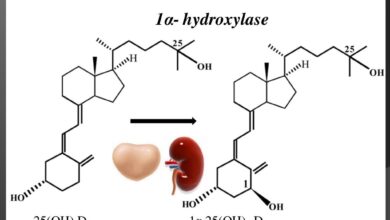
How staying heart healthy will decrease your cancer risk. A healthy heart isn’t just about avoiding heart disease; it’s a crucial factor in lowering your cancer risk too. This exploration delves into the surprising connection between cardiovascular health and cancer prevention, highlighting the role of diet, exercise, stress management, and sleep in protecting both your heart and your overall well-being.
We’ll uncover the biological links and practical strategies to improve your health on multiple fronts.
This article provides actionable steps to improve your heart health and lower your cancer risk. We’ll look at the specific ways diet, exercise, stress, and sleep impact both your heart and your risk of developing cancer. Expect practical advice and actionable steps you can take today to enhance your well-being.
Heart Health Basics
A healthy heart is the cornerstone of overall well-being. It’s not just about avoiding heart attacks; it’s about fostering a vital system that supports every aspect of your life, from physical activity to mental clarity. A strong cardiovascular system efficiently circulates blood, delivering oxygen and nutrients to all your cells. This robust circulation is essential for optimal function throughout your body, directly impacting your energy levels, cognitive performance, and resilience to illness.Cardiovascular health encompasses the proper functioning of the heart, blood vessels, and blood.
It’s about maintaining a balanced system where the heart pumps blood effectively, blood vessels are elastic and unobstructed, and blood is free of harmful substances. This equilibrium is critical for preventing various health issues and ensuring a high quality of life.
Defining Cardiovascular Health
Cardiovascular health is the state of optimal functioning of the heart, blood vessels, and blood. A healthy cardiovascular system efficiently delivers oxygen and nutrients to the body’s tissues and removes waste products, supporting overall well-being.
The Link Between Heart Health and Overall Well-being
A healthy heart is intricately connected to overall well-being. Maintaining cardiovascular health supports optimal physical and mental function. Good cardiovascular health contributes to improved energy levels, better sleep, enhanced cognitive performance, and a stronger immune system. Conversely, poor cardiovascular health can lead to fatigue, reduced cognitive function, and increased susceptibility to various illnesses.
Key Components of a Healthy Heart
Maintaining a healthy heart involves adopting lifestyle choices that promote optimal cardiovascular function. These crucial elements include a balanced diet, regular exercise, and managing blood pressure and cholesterol levels.
Heart Health Factors
| Heart Health Factor | Description | Examples of Healthy Practices | Examples of Unhealthy Practices |
|---|---|---|---|
| Diet | A balanced diet rich in fruits, vegetables, whole grains, and lean protein is crucial for maintaining heart health. | Consuming plenty of fruits and vegetables, choosing lean protein sources, limiting processed foods, and avoiding excessive sugar intake. | Regular consumption of processed foods, excessive consumption of red meat, high-fat dairy products, and sugary drinks. Ignoring portion sizes and neglecting nutritional balance. |
| Exercise | Regular physical activity strengthens the heart muscle, improves blood flow, and helps maintain a healthy weight. | Engaging in at least 150 minutes of moderate-intensity or 75 minutes of vigorous-intensity aerobic activity per week, incorporating strength training exercises twice a week. | Leading a sedentary lifestyle, neglecting regular physical activity, and avoiding any form of exercise. |
| Blood Pressure | Maintaining healthy blood pressure levels is essential for preventing heart disease. | Maintaining a healthy weight, consuming a balanced diet, reducing sodium intake, and managing stress. | Consuming excessive sodium, leading a sedentary lifestyle, ignoring weight management, and neglecting stress management. |
| Cholesterol | Managing cholesterol levels helps prevent the buildup of plaque in arteries, reducing the risk of heart disease. | Consuming foods rich in fiber, regular exercise, and maintaining a healthy weight. | Consuming foods high in saturated and trans fats, leading an inactive lifestyle, and neglecting weight management. |
Cardiovascular Health and Cancer Risk
Maintaining a healthy heart isn’t just about preventing heart disease; it’s also a crucial factor in reducing your cancer risk. The connection between cardiovascular health and cancer risk is complex, but emerging research consistently highlights a significant correlation. Understanding this link allows us to make more informed choices about our lifestyle and potentially reduce our susceptibility to both cardiovascular disease and cancer.
Correlation Between Cardiovascular Disease and Cancer
Cardiovascular disease and cancer share several risk factors, including poor diet, lack of physical activity, and smoking. Furthermore, chronic inflammation, a common feature of both conditions, plays a pivotal role in the development and progression of both. This shared inflammatory environment may create a fertile ground for the growth and spread of cancer cells. Research suggests that individuals with a history of cardiovascular disease may have an increased risk of developing certain cancers.
Maintaining a healthy heart is crucial for overall well-being, and surprisingly, it plays a significant role in reducing your cancer risk. A strong cardiovascular system often correlates with a lower risk of developing certain cancers. For example, dietary choices like comparing the nutritional differences between black raspberries and regular raspberries could be a helpful part of a heart-healthy lifestyle.
black raspberry vs raspberry are a great example of how mindful choices about what you eat can have a positive impact on your heart health, ultimately decreasing your risk of cancer. Focusing on a balanced diet and regular exercise will always help in lowering your risk.
Biological Mechanisms Linking Heart Health and Cancer Risk
Several biological mechanisms may explain the correlation between cardiovascular health and cancer risk. One key mechanism involves chronic inflammation. Inflammation is a natural response to injury or infection, but chronic inflammation can damage cells and tissues, potentially contributing to both heart disease and cancer development. Additionally, impaired blood flow, a characteristic of cardiovascular disease, may also impact the immune system’s ability to detect and destroy cancer cells, thereby increasing the risk of cancer growth.
The shared pathways in the development of these diseases highlight the importance of lifestyle choices in mitigating risk.
Specific Types of Cancer Potentially Affected by Heart Health Choices
Various types of cancer have shown potential links to cardiovascular health. Factors like diet, exercise, and overall lifestyle impact both heart health and cancer risk. The choices we make today significantly influence our future well-being.
Potential Impact on Cancer Types
| Type of Cancer | Potential Link to Heart Health | Supporting Research/Studies | Additional Factors to Consider |
|---|---|---|---|
| Breast Cancer | Studies suggest a possible correlation between cardiovascular risk factors and breast cancer risk, potentially through shared inflammatory pathways. | Observational studies and some clinical trials | Family history, genetic predisposition, hormone levels, and specific dietary factors also play significant roles. |
| Colorectal Cancer | Maintaining a healthy heart, often through diet and exercise, may contribute to a reduced risk of colorectal cancer. Chronic inflammation associated with cardiovascular disease may also influence colorectal cancer development. | Large-scale epidemiological studies | Diet, genetics, and lifestyle choices, including smoking and alcohol consumption, all play a role. |
| Lung Cancer | Smoking, a significant risk factor for both cardiovascular disease and lung cancer, highlights the shared impact of lifestyle choices. | Numerous well-established studies | Genetics, environmental exposure, and other lifestyle factors, like exposure to asbestos, are also contributing factors. |
| Prostate Cancer | Some studies suggest a potential link between certain cardiovascular risk factors and prostate cancer. | Ongoing research and observational studies | Age, genetics, and other lifestyle choices such as diet and exercise need to be considered. |
Dietary Practices for Heart Health

A heart-healthy diet isn’t just about preventing heart disease; it’s also a powerful tool for reducing your cancer risk. The foods we consume significantly impact both our cardiovascular system and our overall cellular health. A diet rich in certain nutrients can help lower inflammation, a key factor in both heart disease and cancer development. Conversely, diets high in processed foods, unhealthy fats, and excessive sugar can contribute to both conditions.
This section explores the intricate connection between diet, heart health, and cancer risk, highlighting specific foods that support both, and those to limit for better overall well-being.
The Influence of Diet on Heart Health and Cancer Risk
Diet plays a critical role in shaping both heart health and cancer risk. A diet rich in fruits, vegetables, whole grains, and lean protein sources supports a healthy cardiovascular system by providing essential nutrients, antioxidants, and fiber. Conversely, a diet high in saturated and trans fats, refined sugars, and processed foods can lead to elevated cholesterol levels, increased inflammation, and an increased risk of both heart disease and various types of cancer.
Inflammation is a key factor in the development of both conditions, and diet significantly influences the inflammatory response within the body.
Nutrients Beneficial for Heart Health and Potential Impact on Cancer Risk
Many nutrients contribute to both heart health and cancer prevention. Fiber, for instance, promotes healthy digestion, lowers cholesterol levels, and may reduce the risk of certain cancers. Antioxidants, abundant in fruits and vegetables, neutralize harmful free radicals, which can damage cells and contribute to both heart disease and cancer. Omega-3 fatty acids, found in fatty fish, are crucial for heart health, and some studies suggest they may also play a role in reducing cancer risk.
Phytochemicals, compounds found in plants, are known for their antioxidant and anti-inflammatory properties, potentially lowering the risk of both heart disease and cancer. Vitamin D, often associated with bone health, has also been linked to a reduced risk of certain cancers and cardiovascular issues. Adequate intake of these nutrients can contribute significantly to a healthy heart and potentially lower cancer risk.
The Role of Inflammation in Both Conditions and How Diet Can Affect It, How staying heart healthy will decrease your cancer risk
Inflammation is a crucial factor in the development of both heart disease and cancer. Chronic inflammation can damage blood vessels, leading to atherosclerosis and heart disease. In cancer, inflammation can create a favorable environment for tumor growth and development. A diet rich in anti-inflammatory foods, such as fruits, vegetables, and whole grains, can help reduce inflammation. Conversely, diets high in processed foods, saturated fats, and refined sugars can exacerbate inflammation.
By modulating inflammation through dietary choices, individuals can potentially reduce their risk of both heart disease and cancer.
Sample 7-Day Meal Plan Emphasizing Heart-Healthy Foods and Potential Cancer-Fighting Properties
This meal plan emphasizes heart-healthy foods with potential cancer-fighting properties. Portion sizes should be adjusted based on individual needs and activity levels.
- Day 1: Focus on lean protein sources like grilled chicken or fish, plenty of colorful vegetables (broccoli, carrots, peppers), and whole-grain quinoa. Include berries for antioxidants.
- Day 2: Include a variety of legumes (beans, lentils) for fiber and protein. Pair with leafy greens and a healthy portion of whole-wheat bread. Enjoy a serving of berries for added antioxidants.
- Day 3: Grilled salmon, asparagus, and brown rice form a balanced meal. Include a side salad with a light vinaigrette dressing.
- Day 4: Lean ground turkey with sweet potato and steamed green beans offer a satisfying and nutritious meal.
- Day 5: A hearty lentil soup with whole-wheat bread and a side salad provides a good source of protein, fiber, and vitamins.
- Day 6: Chicken stir-fry with plenty of colorful vegetables (broccoli, peppers, carrots) and brown rice. Add a side of edamame for healthy fats.
- Day 7: Turkey meatballs with zucchini noodles and a side salad with a light vinaigrette dressing.
Foods to Limit or Avoid for Heart and Cancer Prevention
A diet rich in processed foods, unhealthy fats, and excessive sugar can increase the risk of both heart disease and cancer. Limiting these foods is crucial for overall health.
- Processed Meats: High in saturated fat and sodium, increasing the risk of heart disease and certain cancers. Examples include bacon, sausage, and hot dogs.
- Refined Grains: Lack fiber and nutrients, contributing to inflammation and increasing the risk of both heart disease and some cancers. Examples include white bread, white rice, and pastries.
- Sugary Drinks: Contribute to weight gain, increasing the risk of heart disease and some cancers. Examples include soda, juice, and sweetened beverages.
- Excessive Red Meat Consumption: High in saturated fat and may increase the risk of some cancers. Limit intake to a few servings per week.
- Fried Foods: High in unhealthy fats and may increase inflammation, potentially increasing the risk of both heart disease and some cancers. Limit intake or choose healthier preparation methods.
Physical Activity and Cancer Prevention

Staying active isn’t just about feeling good; it plays a crucial role in both heart health and cancer prevention. Regular physical activity helps maintain a healthy weight, reduces stress hormones, and improves blood flow, all contributing to a lower risk of both heart disease and certain cancers. This section delves into the specific relationship between exercise and cancer risk, exploring the types and intensities of activity beneficial for both heart health and cancer prevention.
The Link Between Exercise and Heart Health
Physical activity strengthens the heart muscle, improving its ability to pump blood efficiently. Regular exercise lowers blood pressure and cholesterol levels, reducing the strain on the cardiovascular system. This, in turn, decreases the risk of heart attacks, strokes, and other cardiovascular diseases. Consistent physical activity promotes healthy blood vessel function and improves blood flow throughout the body, contributing to overall cardiovascular health.
The benefits are cumulative, with more activity leading to more pronounced improvements in heart health markers.
Exercise and Cancer Risk Reduction
Beyond heart health benefits, physical activity has been linked to a reduced risk of several types of cancer. Exercise contributes to maintaining a healthy weight, which is a significant factor in cancer prevention. Furthermore, physical activity enhances the body’s natural defenses against cancer cells, improving immune function and potentially inhibiting the growth of cancerous cells. The precise mechanisms are still being researched, but the evidence supporting the connection between exercise and cancer prevention is robust and growing.
Types and Intensity of Beneficial Exercise
The ideal exercise routine for both heart health and cancer prevention encompasses a combination of aerobic and strength training. Aerobic activities, such as brisk walking, jogging, swimming, or cycling, increase heart rate and improve cardiovascular fitness. Strength training, involving exercises that work against resistance, builds muscle mass and bone density, which are crucial for overall health and well-being.
The intensity and duration of exercise should be tailored to individual fitness levels and health conditions, always starting gradually and progressing gradually. Consult with a healthcare professional before starting any new exercise program.
Exercise Recommendations for Heart Health and Cancer Prevention
| Type of Exercise | Benefits for Heart Health | Benefits for Cancer Prevention | Example Workout Routines |
|---|---|---|---|
| Aerobic Exercise (e.g., brisk walking, jogging, swimming) | Strengthens the heart, lowers blood pressure and cholesterol, improves blood flow, and enhances cardiovascular fitness. | May help maintain a healthy weight, potentially reducing cancer risk, and potentially enhances immune function. | 30 minutes of brisk walking most days of the week; 30-60 minutes of jogging or swimming 3-4 times per week; Cycling for 30 minutes to an hour, 3-4 times per week. |
| Strength Training (e.g., weightlifting, bodyweight exercises) | Builds muscle mass, improves bone density, and increases metabolism, all of which support a healthy heart. | May contribute to maintaining a healthy weight and potentially reducing cancer risk. | 2-3 sessions per week, focusing on major muscle groups (legs, back, chest, shoulders, arms). Examples include squats, lunges, push-ups, pull-ups, and rows. |
| Flexibility and Balance Exercises (e.g., yoga, tai chi) | Improves range of motion, reduces stiffness, and supports overall physical well-being, which indirectly benefits heart health. | May help maintain mobility, preventing falls and injuries, which can be related to cancer risk. | Daily yoga sessions, 30 minutes; Tai Chi sessions, 30-45 minutes, 3-4 times per week. |
Stress Management and Heart Health
Stress is a ubiquitous part of modern life, but its impact on our health, particularly heart health, is significant. Chronic stress can lead to elevated blood pressure, increased heart rate, and changes in cholesterol levels, all of which contribute to cardiovascular disease. Understanding the connection between stress and heart health is crucial for developing effective preventative measures.Prolonged stress can also affect the body’s immune response, potentially increasing the risk of various diseases, including certain types of cancer.
The mechanisms linking stress, inflammation, and cancer risk are complex and still under investigation, but the correlation is clear: managing stress can have a positive impact on both heart health and cancer prevention. Adopting healthy stress management techniques can significantly contribute to overall well-being and a lower risk of both heart disease and certain cancers.
The Impact of Stress on Heart Health
Chronic stress, characterized by persistent feelings of anxiety, worry, and pressure, can have detrimental effects on cardiovascular health. It triggers the release of stress hormones, including cortisol and adrenaline, which in turn elevate blood pressure, heart rate, and blood sugar levels. These physiological responses, if sustained over time, can damage blood vessels, increase the risk of blood clots, and contribute to the development of atherosclerosis (hardening of the arteries).
The long-term effects of chronic stress can range from high blood pressure and irregular heartbeats to increased risk of heart attacks and strokes.
Stress Reduction Strategies and Their Impact on Cancer Risk
Effective stress reduction strategies can significantly mitigate the negative effects of stress on both heart health and cancer risk. These strategies often focus on promoting relaxation, enhancing coping mechanisms, and fostering a sense of control over one’s environment. The aim is not only to decrease immediate stress responses but also to build resilience and improve overall well-being. Evidence suggests that reduced stress levels are associated with a decreased risk of developing certain cancers, likely through its impact on inflammation and immune function.
Connection Between Mental Well-being and Cardiovascular Health
Maintaining good mental well-being is intrinsically linked to cardiovascular health. Stress management techniques, such as mindfulness and meditation, can help regulate emotions, reduce anxiety, and foster a sense of calm. This, in turn, can positively impact blood pressure, heart rate, and cholesterol levels, ultimately lowering the risk of cardiovascular disease. Studies consistently show a correlation between higher levels of stress and an increased risk of heart problems.
Conversely, individuals who practice stress reduction techniques often experience improved cardiovascular health.
Strategies for Stress Management
Implementing stress management techniques can contribute significantly to both cardiovascular and cancer prevention efforts. These strategies promote relaxation, improve coping mechanisms, and enhance overall well-being.
| Stress Management Technique | Impact on Heart Health | Impact on Cancer Risk | Example Implementation |
|---|---|---|---|
| Mindfulness Meditation | Reduces blood pressure, lowers heart rate, improves heart rate variability. | Potentially reduces inflammation, impacting cancer risk factors. | Set aside 10-15 minutes daily for focused attention on breath or body sensations. |
| Progressive Muscle Relaxation | Lowers blood pressure, reduces muscle tension, and promotes relaxation. | Potential impact on inflammatory responses linked to cancer. | Gradually tense and release different muscle groups, focusing on releasing tension. |
| Yoga | Improves cardiovascular fitness, lowers blood pressure, and promotes relaxation. | May influence inflammation levels and immune function, possibly reducing cancer risk. | Practice yoga postures, breathing exercises, and meditation. |
| Cognitive Behavioral Therapy (CBT) | Identifies and modifies negative thought patterns contributing to stress, improving emotional regulation. | May influence stress hormones and inflammation, indirectly affecting cancer risk. | Work with a therapist to identify and challenge negative thought patterns. |
Sleep and Cardiovascular Health
Quality sleep is crucial for maintaining cardiovascular health. Adequate rest allows the body to repair and rejuvenate, reducing stress on the heart and improving its overall function. This, in turn, contributes to a lower risk of developing heart disease, stroke, and other cardiovascular conditions. Furthermore, consistent sleep patterns are linked to better regulation of blood pressure, blood sugar, and cholesterol levels, all vital factors in maintaining a healthy heart.Sleep deprivation, on the other hand, can have detrimental effects on cardiovascular health, increasing the risk of various heart-related issues.
The disruption of natural physiological processes during sleep loss can lead to elevated blood pressure, inflammation, and abnormal heart rhythms. Chronic sleep deficiency can further exacerbate existing heart conditions and contribute to the development of new ones. The cumulative impact of poor sleep over time significantly raises the risk of developing cardiovascular problems. Understanding the intricate link between sleep and cardiovascular health is paramount for effective preventative strategies.
Sleep Deprivation and Cancer Risk
Sleep deprivation weakens the body’s natural defenses against cellular damage, increasing the risk of various cancers. A lack of sufficient sleep disrupts the body’s circadian rhythm, a crucial internal clock that regulates hormone production and cell repair processes. This disruption can lead to heightened levels of stress hormones, such as cortisol, which can contribute to chronic inflammation and an environment more conducive to the development and growth of cancer cells.
Numerous studies have indicated a correlation between chronic sleep deprivation and a higher incidence of certain types of cancer. For instance, individuals who consistently experience sleep disturbances have been shown to have a greater likelihood of developing cancers of the breast, colon, and prostate.
Taking care of your heart isn’t just about feeling good; it can actually lower your cancer risk! A healthy heart often means a healthier body overall. While we’re on the topic of health, have you ever wondered about the need for different sizes of condoms? There’s a lot of discussion about this, and you can find out more about it here: do we need different sizes of condoms.
Ultimately, a healthy lifestyle, including a strong heart, is key to a lower risk of many health problems, including cancer.
Sleep Patterns and Overall Health
Sleep patterns significantly impact overall health, influencing not just cardiovascular health but also cognitive function, mood regulation, and the immune system’s effectiveness. Consistent, high-quality sleep supports the body’s ability to repair and restore, leading to enhanced physical and mental well-being. Individuals with regular sleep schedules generally exhibit better emotional stability, improved concentration, and a more robust immune response.
This positive feedback loop underscores the critical role of sleep in maintaining optimal health across multiple dimensions. Conversely, irregular sleep patterns can negatively impact all these areas, leading to a cascade of health problems.
Impact of Sleep on Heart and Cancer Risk
| Sleep Quality | Impact on Heart Health | Impact on Cancer Risk | Recommendations for Improving Sleep |
|---|---|---|---|
| Excellent | Reduced risk of heart disease, stroke, and other cardiovascular conditions. Improved blood pressure, blood sugar, and cholesterol levels. | Lowered risk of various cancers (e.g., breast, colon, prostate). | Establish a regular sleep schedule, create a relaxing bedtime routine, ensure a conducive sleep environment (dark, quiet, cool). |
| Fair | Increased risk of heart disease, stroke, and other cardiovascular conditions. Potentially elevated blood pressure, blood sugar, and cholesterol levels. | Increased risk of various cancers. | Address underlying causes of poor sleep, seek professional guidance if needed. Practice stress reduction techniques. |
| Poor | Significant risk of heart disease, stroke, and other cardiovascular conditions. Elevated blood pressure, blood sugar, and cholesterol levels are highly probable. | High risk of various cancers. | Seek medical advice to identify and address any underlying medical conditions contributing to sleep problems. Consider cognitive behavioral therapy for insomnia (CBT-I). |
| Very Poor | Extremely high risk of heart disease, stroke, and other cardiovascular conditions. Severe disruptions in blood pressure, blood sugar, and cholesterol levels. | Extremely high risk of various cancers. | Consult a sleep specialist to determine the root cause of severe sleep disturbances. Follow the advice and recommendations from the medical professional. |
Lifestyle Recommendations for Heart and Cancer Prevention: How Staying Heart Healthy Will Decrease Your Cancer Risk
Taking proactive steps towards a healthier lifestyle is crucial for both heart health and cancer prevention. By incorporating positive habits into your daily routine, you can significantly reduce your risk of developing these serious conditions. These choices are not just about feeling better; they are about fostering a stronger, healthier body capable of combating disease.
Key Lifestyle Choices for Overall Heart Health
A holistic approach to heart health involves a combination of dietary choices, physical activity, stress management, and sufficient sleep. These factors are interconnected and influence each other, creating a powerful synergy in maintaining a healthy cardiovascular system. Prioritizing these areas reduces the strain on your heart and promotes optimal functioning.
- A balanced diet rich in fruits, vegetables, whole grains, and lean proteins is fundamental. This approach provides essential nutrients without excess saturated or trans fats, crucial for heart health. For example, incorporating a variety of colorful fruits and vegetables ensures a wide range of vitamins and antioxidants. These nutrients can help protect your cells from damage, which is linked to both heart disease and cancer.
- Regular physical activity, such as brisk walking, jogging, swimming, or cycling, is essential for maintaining a healthy weight and improving cardiovascular fitness. Aim for at least 150 minutes of moderate-intensity or 75 minutes of vigorous-intensity aerobic activity per week. For instance, taking the stairs instead of the elevator or walking during your lunch break can make a significant difference over time.
- Effective stress management techniques, like meditation, yoga, or deep breathing exercises, can help regulate blood pressure and reduce the risk of cardiovascular events. Chronic stress can negatively impact both heart health and the immune system, making individuals more susceptible to various diseases, including cancer. Finding healthy ways to cope with stress is crucial.
- Prioritizing sufficient sleep is vital for overall health, including heart health. Adequate rest allows the body to repair and rejuvenate, reducing inflammation and improving cardiovascular function. Getting 7-9 hours of quality sleep each night is recommended for most adults.
How Healthy Habits Reduce Cancer Risk
Adopting a healthy lifestyle goes beyond just maintaining heart health. The same habits that benefit the cardiovascular system can also play a significant role in lowering the risk of developing cancer. This synergy stems from the positive impact on the body’s overall function and resilience. For example, maintaining a healthy weight and engaging in regular physical activity can boost the immune system, making it more effective at fighting off abnormal cells.
- A diet rich in fruits and vegetables provides essential vitamins, minerals, and antioxidants that can help protect against DNA damage, a key factor in cancer development. These nutrients can help repair cell damage, thus reducing the likelihood of uncontrolled cell growth.
- Physical activity can boost the immune system, helping the body identify and eliminate abnormal cells more effectively. Regular exercise has been linked to lower levels of certain inflammation markers, which have been associated with increased cancer risk.
- Managing stress effectively can contribute to a stronger immune system, allowing the body to better defend itself against harmful substances that can lead to cancer. Chronic stress weakens the immune response, making it more difficult to fight off infections and potentially cancerous cells.
- Adequate sleep is crucial for cell repair and regeneration, essential functions that contribute to overall health and can help prevent cancer. Sufficient rest allows the body to repair any cellular damage, preventing potential mutations that can lead to cancer.
Long-Term Benefits of Consistent Practices
The cumulative effect of consistent healthy habits creates substantial long-term benefits for both heart and cancer prevention. These benefits extend beyond simply avoiding disease; they contribute to a higher quality of life, enabling individuals to enjoy their later years with greater vitality and energy.
Importance of Consulting a Healthcare Professional
While these lifestyle recommendations offer valuable insights, it’s essential to remember that individual needs and circumstances vary. Consulting a healthcare professional for personalized advice is crucial. They can assess your specific health status, identify any potential risks, and create a tailored plan that aligns with your needs. A healthcare professional can provide recommendations that are specific to your health condition and medical history.
Taking care of your heart isn’t just about feeling good; it can actually lower your cancer risk! A healthy heart often correlates with a healthier immune system, which is crucial in fighting off diseases. This, in turn, connects to initiatives like ending the HIV/AIDS epidemic , where a strong immune system is vital. Ultimately, prioritizing cardiovascular health is a powerful step toward overall well-being, including a reduced risk of cancer.
| Lifestyle Change | Impact on Heart Health | Impact on Cancer Risk | Tips for Implementation |
|---|---|---|---|
| Balanced Diet | Reduces risk of high cholesterol, blood pressure, and heart disease | Reduces oxidative stress and supports immune function, potentially lowering cancer risk | Gradually incorporate more fruits, vegetables, and whole grains. Limit processed foods, saturated fats, and sugary drinks. |
| Regular Exercise | Improves cardiovascular fitness, lowers blood pressure, and strengthens the heart | Boosts immune function, lowers inflammation, and may reduce cancer risk | Start with small, achievable goals. Find activities you enjoy and can sustain. Consult a doctor before starting a new exercise program. |
| Stress Management | Reduces blood pressure and improves cardiovascular health | Strengthens the immune system, potentially reducing the risk of cancer | Explore techniques like meditation, yoga, or deep breathing. Prioritize relaxation and time management. |
| Sufficient Sleep | Improves heart function and reduces inflammation | Supports cell repair and immune function, potentially reducing cancer risk | Establish a regular sleep schedule. Create a relaxing bedtime routine. Avoid screens before bed. |
Illustrative Examples of Heart-Healthy Practices
Taking proactive steps towards heart health isn’t just about preventing heart disease; it’s a powerful strategy for reducing cancer risk as well. A healthy heart often translates to a healthier body overall, bolstering the body’s defenses against various diseases. By adopting heart-healthy habits, you’re essentially supporting a resilient system capable of combating cellular damage and abnormal growth, both of which are factors in cancer development.A strong cardiovascular system, fueled by a balanced diet and regular exercise, plays a crucial role in transporting vital nutrients and removing waste products efficiently.
This efficient circulation supports the body’s natural repair mechanisms, potentially reducing the likelihood of cancerous cell formation.
Heart-Healthy Foods for Cancer Prevention
A diet rich in fruits, vegetables, and whole grains forms the cornerstone of heart-healthy eating and significantly contributes to cancer prevention. These foods are packed with antioxidants, fiber, and essential nutrients, supporting a healthy inflammatory response and protecting against cellular damage.
- Fruits and Vegetables: Berries, leafy greens, citrus fruits, and colorful vegetables are excellent sources of vitamins, minerals, and antioxidants like vitamin C and lycopene. These nutrients help protect cells from damage and reduce inflammation, thus lowering the risk of both heart disease and certain cancers. For example, a diet rich in cruciferous vegetables like broccoli and cauliflower has been linked to a lower risk of various cancers due to their high sulfur content, which can help detoxify the body.
- Whole Grains: Whole grains like brown rice, quinoa, and oats are rich in fiber. Fiber promotes healthy digestion, helps regulate blood sugar levels, and lowers cholesterol, all of which are crucial for heart health. Additionally, fiber aids in the removal of potentially harmful substances from the body, potentially lowering cancer risk.
- Healthy Fats: Incorporating healthy fats like avocados, nuts, and seeds into your diet provides essential fatty acids and supports heart health by reducing LDL cholesterol and increasing HDL cholesterol. These fats also play a role in cell function and structure, which can be important for cancer prevention.
Example Meal Plan for Heart and Cancer Prevention
This meal plan emphasizes fruits, vegetables, and whole grains, demonstrating their impact on heart health and cancer risk reduction.
| Meal | Description |
|---|---|
| Breakfast | Oatmeal with berries, nuts, and a sprinkle of cinnamon. |
| Lunch | Mixed green salad with grilled chicken or fish, chickpeas, and a light vinaigrette dressing. |
| Dinner | Baked salmon with roasted vegetables (broccoli, carrots, sweet potatoes) and brown rice. |
| Snacks | Fruits (apples, bananas, oranges), a handful of almonds, or a small portion of plain yogurt. |
Exercise for Heart Health and Cancer Prevention
Regular exercise, including both cardio and strength training, is vital for maintaining a healthy heart and reducing cancer risk. Exercise strengthens the cardiovascular system, improves blood circulation, and helps maintain a healthy weight.
- Cardiovascular Exercise: Activities like brisk walking, jogging, swimming, or cycling strengthen the heart muscle, improve blood flow, and help regulate blood pressure. These activities are linked to a reduced risk of various cancers, including colon and breast cancers.
- Strength Training: Exercises like weightlifting, bodyweight training, or resistance band workouts build muscle mass and improve bone density. Increased muscle mass can improve insulin sensitivity and metabolism, contributing to a lower risk of cancer.
Stress Management for Heart and Cancer Prevention
Chronic stress can negatively impact both heart health and increase cancer risk. Stress management techniques like meditation and yoga can help mitigate these effects.
- Meditation: Meditation involves focusing on the present moment to calm the mind and reduce stress hormones. Regular meditation has been shown to improve cardiovascular health and potentially lower the risk of certain cancers by reducing chronic inflammation.
- Yoga: Yoga combines physical postures, breathing techniques, and meditation to promote physical and mental well-being. Yoga’s stress-reducing properties can have a positive impact on heart health and may contribute to a lower risk of cancer.
Closure
In conclusion, maintaining a healthy heart is not just about preventing heart disease; it’s a powerful strategy for reducing your cancer risk. By focusing on diet, exercise, stress management, and quality sleep, you can significantly improve your overall health and well-being. Remember, small, consistent changes can lead to substantial long-term benefits. Consult your doctor for personalized advice tailored to your specific needs.





